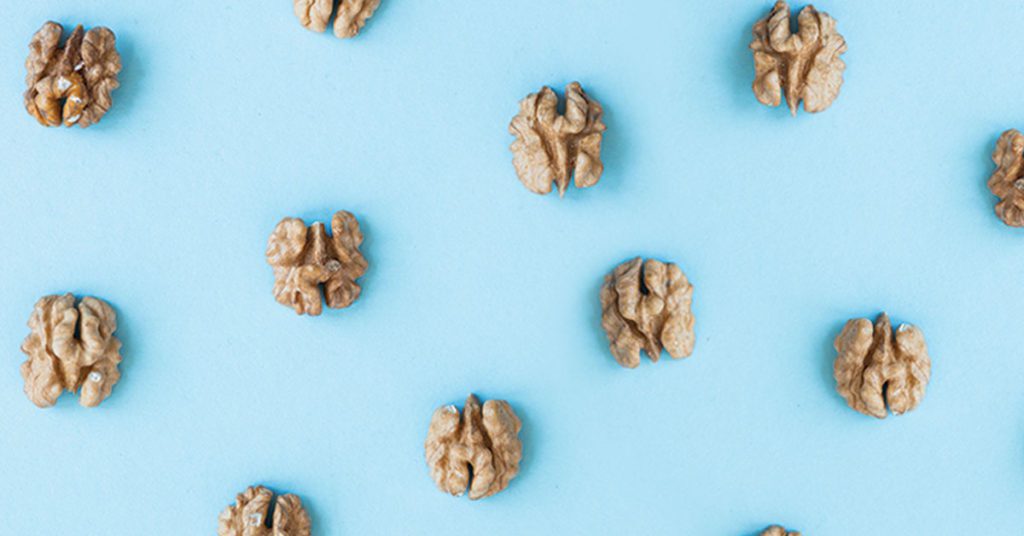Adopting a new diet and lifestyle takes time, preparation, and commitment to a routine.
Following a keto diet can be a great option for those who have concerns about their cognitive health. Studies indicate that increased energy metabolism from the keto diet can be beneficial for the brain and improve memory and cognitive abilities.
What Is the Keto Diet?
The ketogenic (keto) diet focuses on consuming high-fat foods and taking in a low amount of carbohydrates.
Daily amounts consist of:
- Fat (70–80%)
- Protein (10-20%)
- Carbs (5-10%) about 40 grams per day or less.
This high fat, low carb diet focuses on encouraging your body towards the state of ketosis. When your body goes into ketosis, this allows fat to become your main source of energy.
In Dr. Dale Bredesen’s book, The End of Alzheimer’s, he details how ketosis is the natural process by which your body breaks down stored and dietary fat to use as fuel.
Dr. Bredesen’s KetoFLEX 12/3 diet is part of his renowned ReCODE protocol, for those looking for a program to reverse symptoms of cognitive decline and optimize brain health.
The KetoFLEX 12/3 diet involves merging ketosis (Keto) with metabolic flexibility (FLEX). 12/3 represents the time duration for fasting (12 hours of fasting each day and 3 hours of fasting before bed).
On the KetoFLEX 12/3 protocol, it’s important to maintain healthy insulin levels and avoid overconsumption of highly refined, processed foods.
Some good fats to consume on the keto diet include avocado, salmon, coconut oil, MCT oil, nut butter, olive oil, dark chocolate, seeds, and nuts. Fats to avoid include vegetable oil, processed meats, and processed cheeses.
How Is the Keto Diet Good for the Brain?
The low-carb keto diet is neuroprotective and can have the potential to improve memory. A study in which mice were fed a low-carb diet showed that their memories improved over time as they aged.
Because chronic inflammation is the root of many diseases, following a low-carb diet without processed foods can aid in reducing the risk for brain diseases caused by inflammation.
Consuming high-quality, healthy fats can also help support the development of brain-derived neurotrophic factor (BDNF).
BDNF is a neuroprotective, naturally occurring protein in the brain that supports memory and learning. “Neuro” refers to the neurons and nervous tissue, and “trophic” refers to its nutritional benefit and ability to activate other cells.
Five Pros of Keto Diet
Putting emphasis on consuming good fats rather than bad fats, is an ongoing balancing act. There are several keto diet pros and cons to consider before deciding if this lifestyle change is the best choice for you.
1. Healthy Insulin Levels
Sugar can negatively affect the production of healthy levels of brain nerve growth factors. Excess sugar intake can have a detrimental impact on brain function.
By lessening our amount of sugar consumption, we help lower rising levels of insulin. When we go through ketosis, it causes our insulin levels to drop, resulting in the body using sources of fat for energy.
Following a keto diet helps to limit your sugar consumption by relying less on simple carbohydrates.
2. Appetite Suppressant
Because this diet adheres to consuming a high intake of fats, the keto diet can lower your appetite for carbohydrates and increase your energy levels. It can fend off hunger and help you feel fuller in between mealtimes.
3. Lowered Epileptic Seizures in Children
According to the Epilepsy Foundation, doctors may advise that children who do not respond favorably to seizure medications follow a ketogenic diet.
It’s reported that over half of children who follow this protocol have at least a 50% reduction in the number of their seizures. They may experience increased alertness, improved behavior, and enhanced cognitive function from this change in diet.
4. Lowered Risk for Heart Disease
Because of the reduced triglycerides in the blood, there is a less dense amount of fat molecules stored. This lowers the amount of fat that can put one at risk for heart disease.
5. Decreased Sugar Cravings
Being more reliant on foods without a high sugar ratio leads to fewer sugar cravings and body detoxification from the harmful effects of regular sugar consumption.
Five Cons of Keto Diet
When you adjust to the state of ketosis, your body may respond in a number of ways. You’ll be adjusting to using ketones and fat as the core sources of energy, rather than carbohydrates. This may initially put stress on various organs, cause electrolyte imbalance, and possibly cause nutrient deficiencies.
1. Physical Discomforts and Side Effects
As your body adjusts to a new diet, you may feel uncomfortable and experience headaches, a range of food cravings, body and muscle cramps, and more. Muscle loss can also be a side effect.
2. Possible Nutrient Deficiencies
Because it’s a limited, restrictive diet, the chances are greater that you may not be receiving your daily, optimum levels of nutrients from your food consumption. You may need to keep a log of what you’re eating to determine if you’re reaching appropriate levels of vitamins and minerals, to avoid a nutrient deficiency.
It’s advised to seek out a Bredesen-certified practitioner to guide you through these lifestyle changes safely and effectively. You can find a Bredesen-certified practitioner near you with this handy locator from Apollo Health.
3. Disciplined Lifestyle
It is essential to follow keto guidelines consistently in order for this diet to be effective. It can be restrictive to follow these guidelines for a long duration. Following a routine with the keto diet for longer than three months will enable you to see the best results.
4. Increased Heart Disease Risk
Eating a higher amount of fats is associated with a higher risk of developing heart disease. However, if you focus on healthy fats and maintain an active lifestyle, you can avoid this risk.
5. Possible Digestive Issues
This occurs in part due to the higher levels of fiber intake, so constipation may result.
Incorporating the Keto Diet Into Your Life
Taking steps to change your lifestyle habits, including regular exercise, while on the ketogenic diet is helpful. Combining exercise with the ketogenic diet will help stimulate anti-inflammatory signaling and reduce the chronic inflammation that results from following a high-fat diet.
If you’re looking to learn more about incorporating healthy fats into your keto diet, be sure to check out our blog on essential omega-3 fatty acids and DHA benefits.





